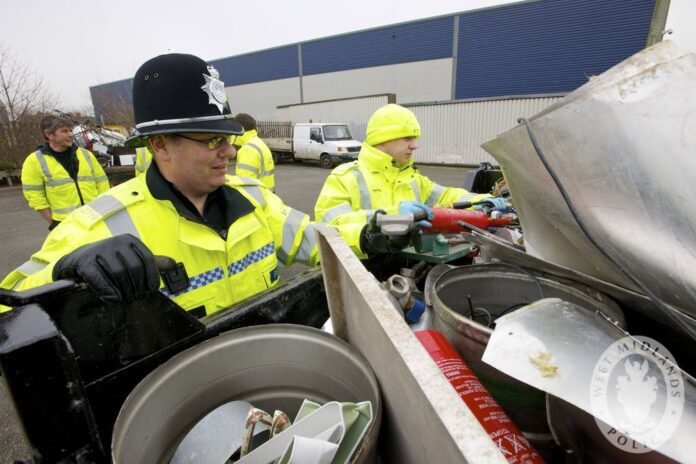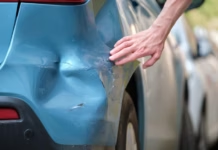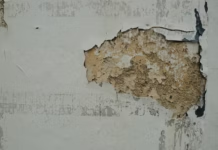NEW REPORT REVEALS METAL THEFT COSTING UK ECONOMY HALF A BILLION POUNDS A YEAR
KEY STATS:
*Metal theft now costs the UK economy half a billion pounds a year and – £4.3bn since 2013.
*Up to 60 Organised Crime Groups are currently active – and account for the majority of metal theft crime.
*Thefts of catalytic converters soared from 10,049 in 2013 to 27,195 last year – a rise of 170 percent.
*Thefts involving lead increased from 5,947 to 6,446 over the same period, a rise of eight percent.
*In 2022 alone, one organisation suffered 334 incidents of cable theft – totalling losses of £5.3m.
*Commuters suffered 72,000 minutes/50 days of delay in 2022 because railway signaling or overhead cables, containing high-value copper, had been stolen.
*There were just 229 prosecutions between 2018 and 2022 for scrap metal dealer offences.
ORGANISED crime groups are behind a surge in metal theft that cost the UK economy half a billion pounds last year, a new report reveals today.
Tackling Metal Theft, a report by the All-Party Parliamentary Group on Metal, Stone and Heritage, also concluded cases have been rising annually since 2019, and found incidents have cost £4.3bn over the past decade.
As a result, the Group is now making a series of ten recommendations which, they say, could be taken to address the epidemic in metal crime.
These include the creation of a new Home-Office led working group.
Commenting on the report, Andrew Selous, MP, the Chair of the APPG and the Second Church Estates Commissioner, said:
“Metal is ubiquitous in the built environment. Without metal, we would not have bridges, electricity, cars, phones or many of the other gadgets and infrastructure we use today.
“The numerous applications of metals make them valuable, yet their value makes them attractive to steal. As Second Church Estates Commissioner, I often hear reports of some of our most cherished churches having had the lead stripped off their roofs.
“But metal theft does not stop with churches; it is pervasive through society. Yet, when a metal theft is reported, it is often classified as a ‘non dwelling burglary’ which does not represent the true nature of the crime; a crime predicated on stealing the constituent metals. This has led to a knowledge gap of the true scale of metal theft affecting our nation.
“Our ‘Tackling Metal Theft’ inquiry has subsequently sought to close this knowledge gap by engaging with both the private and public sector and hearing from expert witnesses on their experiences dealing with metal theft.
“We found there are great efforts, by single actors to prevent and reduce metal theft, but that in parts of central and local government, metal theft is not prioritised as highly as it should be given its substantial cost to United Kingdom’s economy and its impact on our daily lives.
“The All Party Parliamentary Group on Metal Stone and Heritage Crime hope this report will act as the catalyst needed to ensure that we win the fight against metal theft.”
THE REPORT:
The APPG report, released today, is the result of a year-long inquiry into metal theft. In compiling it, the Group spoke to witnesses including senior officers from a number of UK Police Forces, the British Transport Police, Network Rail, the Church of England, the War Memorials Trust, Historic England, the Local Government Association and BT. Witnesses provided either oral or written evidence.
WHAT IS BEING STOLEN?
The report found the most stolen metal-containing objects are catalytic converters from cars, where thieves are trying to obtain the palladium, rhodium and platinum used within the converters; lead from church or historic building roof and cable where the thieves are targeting the copper.
According to the data gathered in the report, thefts of catalytic converters soared from 10,049 in 2013 to 27,195 last year – a rise of 170 percent.
Thefts involving lead increased from 5,947 to 6,446 over the same period – a rise of eight percent.
The report found catalytic converters are stolen in order to access around 4-8 grams of precious metals (platinum, palladium and rhodium) contained within the device. Thefts have spiked because twenty-eight grams of rhodium alone is worth around £7,600 on current precious metal markets. The cost for a member of a victim to replace a stolen catalytic converter is estimated to be £1,000.
The report found that criminals targeting catalytic converters can be sophisticated in their methods to access the metal, including wearing high-visibility jackets to appear official when in residential or commercial parking areas such as hospitals. Gangs are frequently reported to be armed with baseball bats, and angle grinders – which they use to cut the catalytic converters off the cars and use them to scare off owners.
WHAT IS THE IMPACT?
Many private organisations who provide essential infrastructure are being impacted, such as the telecoms and power networks, are frequent victims of cable theft. One organisation told the APPG how, in 2022 alone, it suffered 334 incidents of cable theft – totalling losses of £5.3m.
Last year, when thieves targeted Horsmonden, in Kent, four times in one month, residents and small businesses in part of the village were left without phone lines for over two weeks
In 2021, thieves targeted St Woolos Hospital in Newport, Wales, stealing £35,000 worth of cable. This disabled the emergency generator, which meant the hospital was left with no backup in the event of a power cut – thereby putting patient lives at risk
The power networks themselves are also routinely targeted by criminals. A gang of thieves was jailed in 2020 for stealing 57 miles of cable and leaving 45,000 homes without power. While they escaped without injury, four horses were killed when metal thieves left an 11,000-volt power line hanging down into their field.
WHO IS BEHIND THE CRIMEWAVE?
Historically, it has been assumed that stolen metal was being monetised abroad.. However, the report found how, increasingly, stolen metal is now being processed within the confines of the UK. The report also found these unlawful dealers are flourishing because there have been budget cuts across various governmental bodies,
It was a common theme presented by witnesses to the APPG that there are two distinct types of criminals involved in metal theft. First, is the ‘opportunistic criminal’. This is an actor who lacks organisation but is driven to criminality through the high economic reward that these valuable materials provide.
The second type of criminal presented was the organised crime group (OCG), which can range from three people to upwards of 200, using sophisticated means to pursue criminality.
The APPG’s research suggests up to sixty OCGs are now actively conducting metal thefts and account for the majority of metal theft crime. When the Metropolitan Police made 20 arrests in March 2021 across a single OCG, waste crime dropped by 50% in the London area alone.
IS IT BEING TREATED SERIOUSLY ENOUGH?
The report said the prevalence of metal theft suggests sentencing guidelines and prosecution rates do not effectively provide a disincentive to criminals involved in the activity.
Another issue identified was via data gathered by the British Metals Recycling Association through a Freedom of Information request. This showed how many operators have stopped renewing their Scrap Metal Dealer Licences, relying instead on only a Waste Carriers Licence in order to appear ostensibly legal.
Evidence presented, and data gathered by the APPG, indicate the problem is growing because there is no one body who has ownership nor oversight of the Scrap Metal
Dealers Act (SMDA) 2013. The situation is compounded by the fact there is no existing Home Office code for metal theft and no gathering of data to show the type, extent, value, or impact of the crime.
Additionally, prosecution and sentencing data obtained by the APPG showed there were very few perpetrators of metal theft being caught, prosecuted or sentenced for metal crime. Statistics contained within the report show a total of just 229 prosecutions between 2018 and 2022 for scrap metal dealer offences.
THE REPORT CONCLUDED:
“While the Scrap Metal Dealers Act worked initially to reduce the incidence of metal theft, a lack of ownership and decreasing levels of knowledge about the Act have led to a lack of enforcement. This has made unlawful dealers free to operate with impunity, being very unlikely to be caught and/or prosecuted. If prosecutions are taken forward, often the sentencing does not match the impact the crime has had. Making metal theft offences more serious will increase the risk and redress the associated loss connected with the crime.”
WHAT SHOULD HAPPEN:
The Inquiry has now made 10 recommendation which they believe could be effective at reversing the upward trend of incidences in metal theft since 2019.
These include*:
Recommendation one: A Home Office-led Working Group should be established comprising all the stakeholders involved in tackling metal crime and enforcing the SMDA. This group should include, but not be limited to, the Home Office, the National Police, Chief’s Council, the National Crime Infrastructure Partnership, the Local Government Association, Historic England and the Environment Agency.
Recommendation two: That the Home Office inserts a specific metal theft offence code as a requirement in their next Annual Data Return. This measure will ensure that all police forces are obligated to return annual data for metal theft.
Recommendation three: That the Home Office requires police services to capture more detail on metal crime, including type of metal stolen, quantity, value and social impact.
Recommendation four: A concerted national police effort to gather intelligence on, and to counter and to disrupt, the Organised Criminal Gangs who are not only responsible for the bulk of Metal Theft but in addition much other crime that affects rural areas.
Recommendation five: That the Home Office should lead a review of which organisation is most suitable to carry out Scrap Metal Dealer licensing.

| [donate]
| Help keep news FREE for our readersSupporting your local community newspaper/online news outlet is crucial now more than ever. If you believe in independent journalism,then consider making a valuable contribution by making a one-time or monthly donation. We operate in rural areas where providing unbiased news can be challenging. |



















